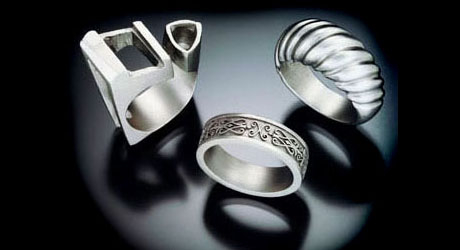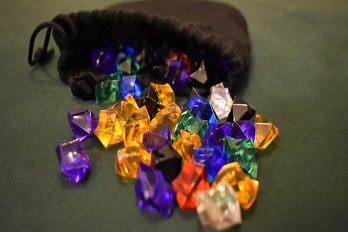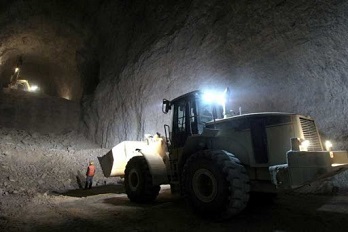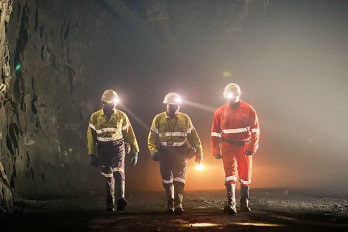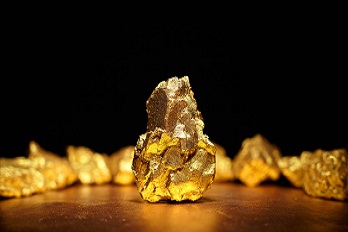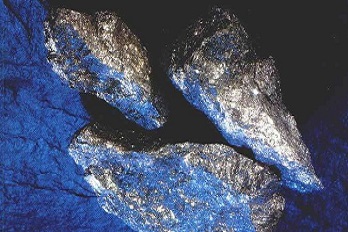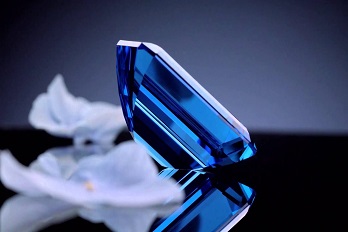Mining Terms Glossary
Welcome to the Mineral and precious stone glossary
A B C D E F G H I J K L M N O P Q R S T U V W X Y Z All terms
I
Icosahedron
Twenty sided polyhedron; all sides are equidimensional. Minerals shaped as icosahedrons belong to the isometric system. Plural = Icosahedra or Icosahedrons
Igneous
Of volcanic origin
Igneous rock
A type of rock from volcanic origins. Igneous rock can be glassy, crystalline, or both.
Impure
Containing impurities.
Impurity
An item present in a mineral which is not part of its integral structure, and may change its optical properties, such as color.
Inclusion
Materials that are locked inside a mineral as it is forming. (i.e. Rutilated Quartz)
Incrust
To form a crust over.
Incrustation
A pseudomorph occurring when a mineral forms a coating over another mineral, and the coated mineral dissolves. This leaves a hollow cast of the mineral that coated the dissolved mineral.
Infiltration
A pseudomorph occurring when some atoms of a mineral are replaced by different atoms forming another mineral.
Inosilicates
Group of silicate minerals that have their tetrahedrons form single or multiple chains, with two oxygen atoms of each tetrahedron part of its neighboring tetrahedron forming long, thin, chains. For more information, see "All About the Silicates Group".Group of silicate minerals that have their tetrahedrons form single or multiple chains, with two oxygen atoms of each tetrahedron part of its neighboring tetrahedron forming long, thin, chains. For more information, see "All About the Silicates Group".
Inorganic
Not containing any organic substances.
Intaglio
Gemstone carved into a cameo, but instead of the engraving raised above the background, as in the cameo, the engraving is etched into the background. Intaglios were used as royal seals.
Intermediary
Describing a mineral midway between two mineral of a series. For example, the mineral Olivine - (Mg,Fe)2SiO4 - is midway between Forsterite - Mg2SiO4 - and Fayalite - Fe2SiO4 - in the Olivine Group.
Intrusive rockIntrusive roc
Igneous rock that was formed underground, from magma that was stuffed into cracks.
Ion
Atom that becomes positively or negatively charged due to the loss or gain of an electron. (See anion, cation)
Iridesce
The present term describing something displaying iridescence.
Iridescence
Light effect causing a mineral to display a play of colors on an apparently monocolored surface. Iridescence is many times the result of pearly luster, seen around an area where pressure occurred, displaying a similar image to that of fresh oil rising to the surface of a road at the beginning of a rain. Iridescence is also the result of mild tarnishing of a few metallic lustered minerals, such as Chalcopyrite and Hematite.
Irradiation
The act of being exposed to radiation. This may have an effect on several gemstones by altering their color.
Isometric (crystal system)
Any mineral that falls under the following specifications belongs to the isometric crystal system: Three axes, all of them are equal in length and lie at 90° from the other. (See Crystals in mineral properties for more information). The term isometric is also used to describe any mineral equal in all three dimensions.
Isomorph
Describing a mineral as being isomorphous to another.
Isomorphous
Having the same crystal form, meaning that the molecular arrangement is identical, except for the fact that different elements are present. If two minerals are isomorphous to each other, than they contain different elements arranged in the same arrangement and number, such as Calcite (CaCO3) and Siderite (FeCO3).
Isomorphism
The concept of minerals being isomorphous to one another.
Isotropization
Radioactive decaying that causes destruction to a minerals crystal lattice.
Ivory
Ornamental material made out of the calcareous teeth of many mammals, such as elephants, sea lion, hippopotamus, narwhal, and boar.


